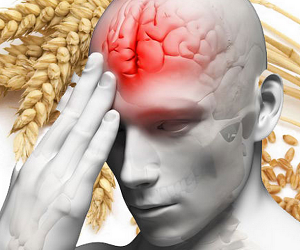 A study by canadian scientists.
A study by canadian scientists.
Canadian researchers found changes in the activity of the metabolism of the neurotransmitter serotonin depending on the time of year that may be the cause of seasonal fluctuations in mood and seasonal affective disorders.
Serotonin is a neurotransmitter that transmits signals between nerve cells (neurons) in the brain systems responsible for the formation of mood, food and sexual behavior, energy metabolism and sleep. His role in the seasonal changes of mood and it was suspected for a long time. A study conducted at the University of Toronto, demonstrated the possible mechanism of this relationship.
Like any neurotransmitter, serotonin is released in the synaptic cleft of the neuron transmitting the signal and acts on the receptors of the neuron receiving the signal. One of the key regulators of the serotonin concentration in the synaptic cleft is a protein-carrier, exciting it the excess back into the transmitting neuron. Accordingly, the higher activity of the vector, the less the action of serotonin. By blocking this protein, it works most of the modern antidepressants.
Canadian researchers studied the activity of the serotonin Transporter in 88 healthy volunteers (mean age 33 years) at different times of the year using positron emission tomography. It turned out that this activity was significantly higher among men surveyed in winter and autumn, in the conditions of short light day. Moreover, when comparing the results of the research with meteorological data revealed that the activity of the serotonin Transporter was highest in days with a minimum number of hours of sunshine.
Earlier, Austrian researchers have shown the dependence on level of illumination of activity of the serotonin Transporter in human platelets, where there are also serotonin receptors. The canadian study was the first that demonstrated such a relationship in the neurons of the brain directly involved in the formation of attitudes.
The obtained data convincingly explain the frequent appearance in the autumn-winter period of symptoms associated with lack of serotonin: increased fatigue, drowsiness and overeating.








